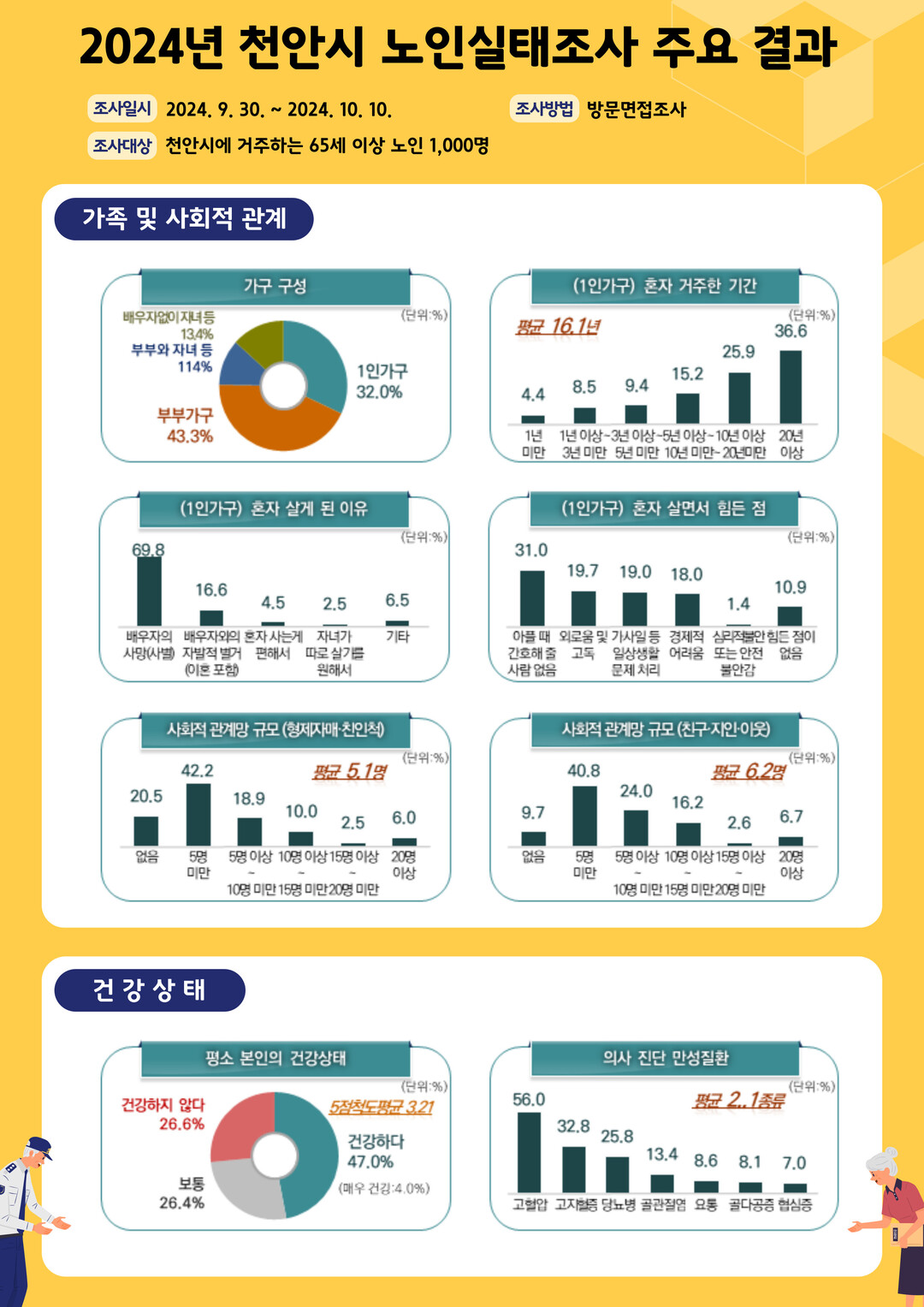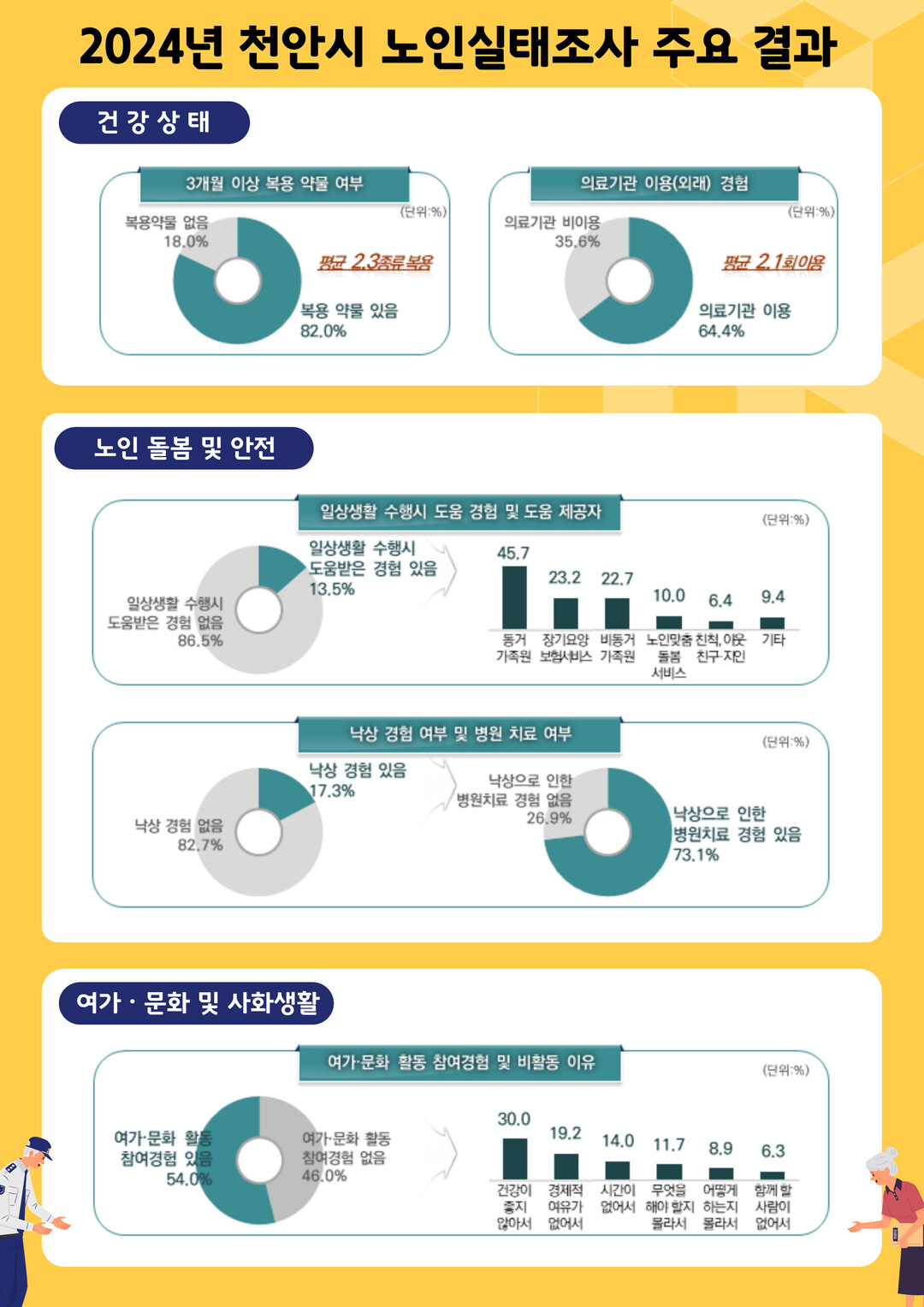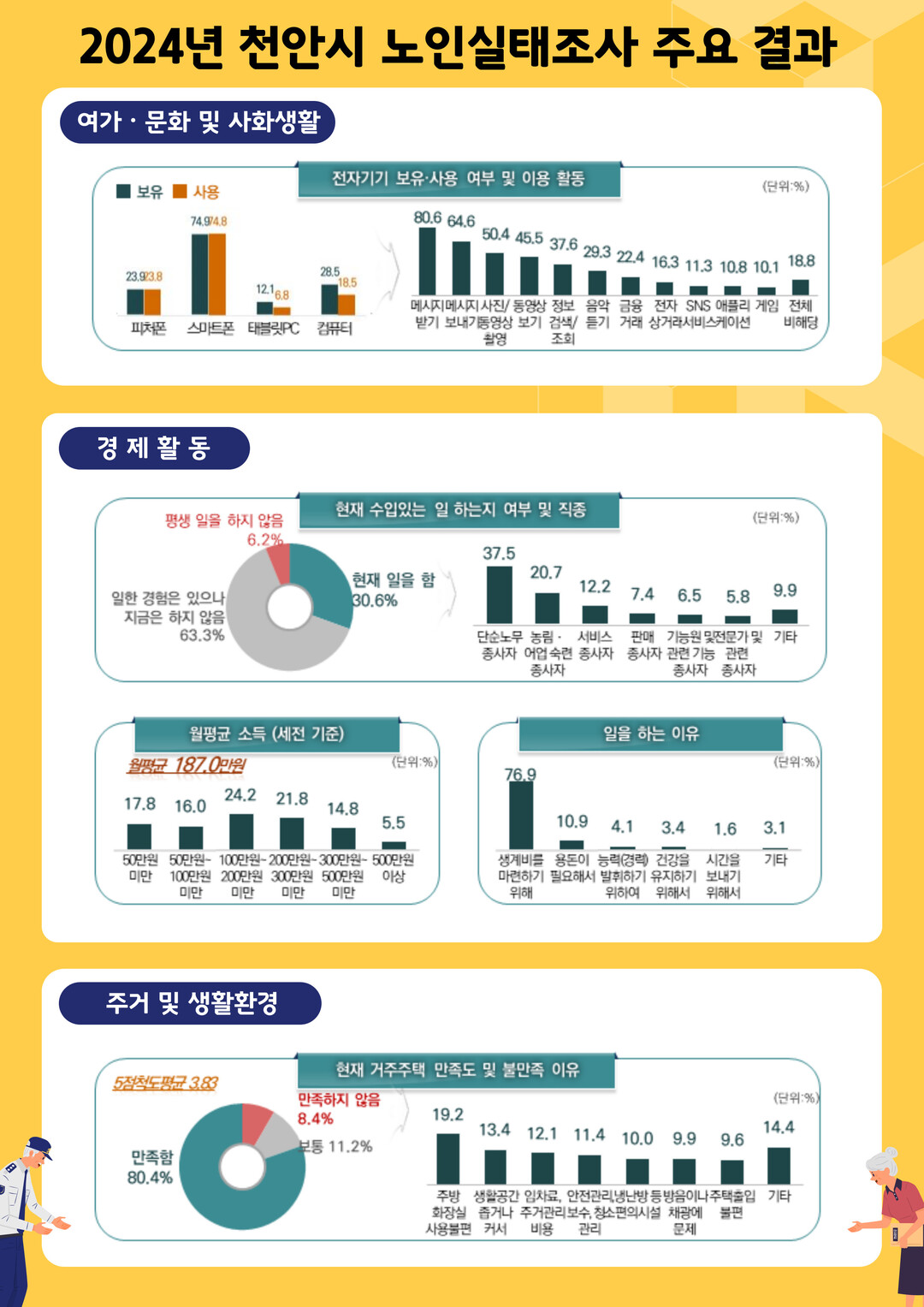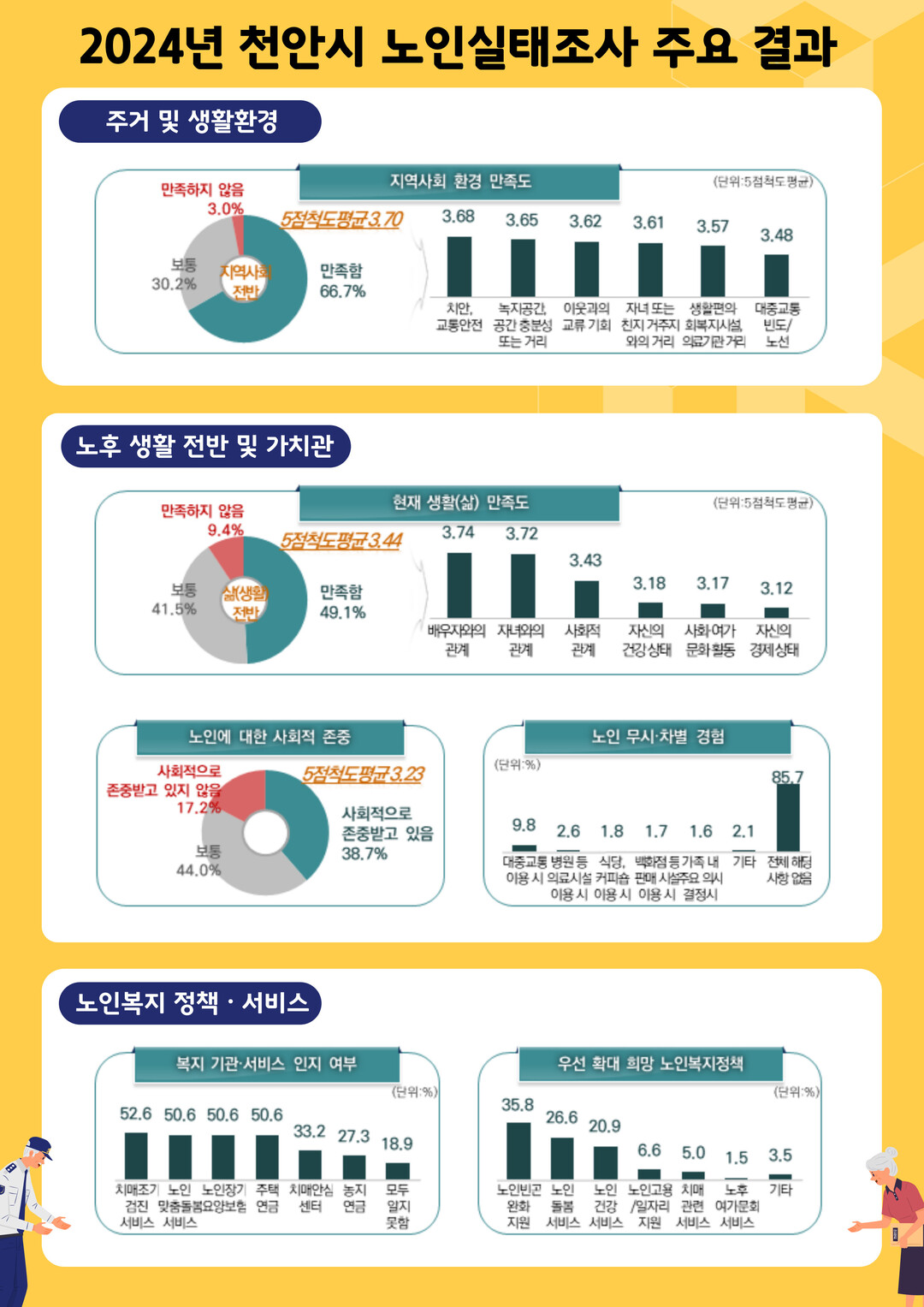
Survey of 9 categories... To be used as basic data for establishing welfare policies
Cheonan City announced on the 1st that a survey revealed 66.7% of seniors in the Cheonan area are satisfied with their local community environment.
The 'Cheonan City Senior Citizen Survey' was conducted to be used as foundational data for establishing senior welfare policies. This survey, the first of its kind, was implemented to systematically respond to changes due to the increasing senior population. It was conducted through face-to-face interviews with 1,000 citizens aged 65 or older for 11 days starting from September 30th of last year.
The survey covered a total of 9 categories: basic information, family and social relationships, health status, care and safety, leisure culture and social activities, economic activities, housing and living environment, overall life in old age, and senior welfare policies and services.
The survey results showed that 66.7% of seniors are satisfied with their local community environment. Satisfaction levels for specific elements of the local community environment were as follows: convenience facilities and social welfare facilities, distance to medical institutions (66.2%), public safety and transportation safety (64.5%), and sufficiency or distance of green spaces (62.8%).
The average monthly household income of the surveyed seniors was mostly in the ranges of less than ₩500,000 (17.8%), ₩500,000 to less than ₩1,000,000 (16.0%), ₩1,000,000 to less than ₩2,000,000 (24.2%), and ₩2,000,000 to less than ₩3,000,000 (21.8%). The average monthly income (before tax) was ₩1,870,000.
Regarding marital status, 56.3% were married, 34.1% were bereaved, 8.6% were divorced or separated, and 1.0% were never married. Household types were: couples (43.3%), single-person senior households (32.0%), living with children or others without a spouse (13.3%), and couples living with children (11.4%).
The average duration of living alone for single-person senior households was 16.1 years. The most common reason for living alone was the death of a spouse (69.8%), followed by voluntary separation (16.6%).
When asked about their health status, 47.0% responded that they were 'healthy'. 82.0% reported taking an average of 2.3 types of medication, and 64.4% had visited a medical institution (outpatient) within the past month.
13.5% of the surveyed seniors had experience receiving assistance from others. The providers of assistance were cohabiting family members (45.7%), long-term care insurance services (23.2%), non-cohabiting family members (22.7%), customized elderly care services (10.0%), and relatives, neighbors, friends, and acquaintances (6.4%).
The survey revealed that 54.0% had participated in leisure and cultural activities. Reasons for not participating included 'poor health' (30.0%), 'lack of financial resources' (19.2%), and 'lack of time' (14.0%).
The employment rate among seniors was 30.6%. The main reasons for working were to cover living expenses (76.9%) and to earn pocket money (10.9%).
The primary occupations were simple laborers (37.5%), skilled agricultural, forestry, and fishery workers (20.7%), service workers (12.2%), sales workers (7.4%), and craft and related trades workers (6.5%).
Regarding housing and living environment, 80.4% of seniors were satisfied with their current residence. However, dissatisfaction was expressed regarding kitchen and bathroom facilities (19.2%), living space size (13.4%), and costs such as rent and housing management fees (12.1%).
Only 38.7% of the surveyed seniors felt 'socially respected', and the most common experience of disregard or discrimination was when using public transportation (9.8%).
The most desired senior welfare policies were support for poverty alleviation (35.8%), care (nursing) services (26.6%), health services (20.9%), employment and job support (6.6%), and dementia-related services (5.0%).
Yoon Eun-mi, Director of Welfare Policy, stated, "Through this survey, we were able to objectively diagnose the current living conditions of the elderly in our region and specifically understand their welfare needs. We will establish customized policies with a high sense of impact and create a welfare environment where both seniors and their families can feel secure."



[Copyright (c) Global Economic Times. All Rights Reserved.]






























